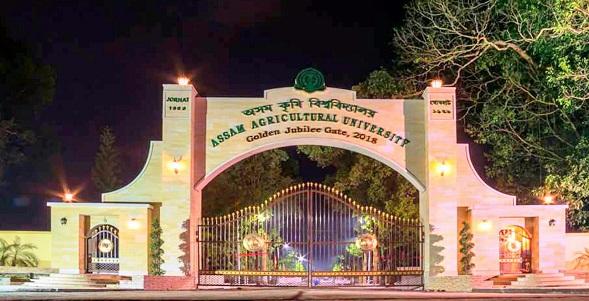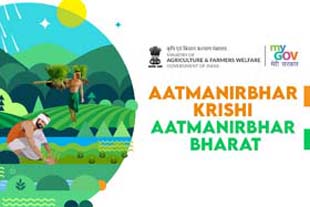About the University
Assam Agricultural University is the first institution of its kind in the whole of North-Eastern Region of India. The main goal of this institution is to produce globally competitive human resources in farm sectorand to carry out research in both conventional and frontier areas for production optimization as well as to disseminate the generated technologies as public good for benefitting the food growers/produces and traders involved in the sector while emphasizing on sustainability, equity and overall food security at household level.
Genesis of AAU
The embryo of the agricultural research in the state of Assam was formed as early as 1897 with the establishment of the Upper Shillong Experimental Farm (now in Meghalaya) just after about a decade of creation of the agricultural department in 1882. However, the seeds of agricultural research in today’s Assam were sown in the dawn of the twentieth century with the establishment of two Rice Experimental Stations, one at Karimganj in Barak valley in 1913 and the other at Titabor in Brahmaputra valley in 1923. Subsequent to these research stations, a number of research stations were established to conduct research on important crops, more specifically, jute, pulses, oilseeds etc. The Assam Agricultural University was established on April 1, 1969 under The Assam Agricultural University Act, 1968’ with the mandate of imparting farm education, conduct research in agriculture and allied sciences and to effectively disseminate technologies so generated. Before establishment of the University, there were altogether 17 research schemes/projects in the state under the Department of Agriculture. By July 1973, all the research projects and 10 experimental farms were transferred by the Government of Assam to the AAU which already inherited the College of Agriculture and its farm at Barbheta, Jorhat and College of Veterinary Sciences at Khanapara, Guwahati.
Subsequently, College of Community Science at Jorhat (1969), College of Fisheries at Raha (1988), Biswanath College of Agriculture at Biswanath Chariali (1988) and Lakhimpur College of Veterinary Science at Joyhing, North Lakhimpur (1988) were established. Presently, the University has three more clleges under its jurisdiction, viz., Sarat Chandra Singha College of Agriculture, Chapar, College of Horticulture, Nalbari & College of Sericulture, Titabar. Similarly, few more regional research stations at Shillongani, Diphu, Gossaigaon, Lakhimpur; and commodity research stations at Kahikuchi, Buralikson, Tinsukia, Kharua, Burnihat and Mandira were added to generate location and crop specific agricultural production packages.
Mandates
Imparting resource conserving, quality and market driven education in agriculture and allied fields to facilitate agricultural growth for food security
Undertake basic, strategic and applied research in the sector for agriculture centric business and employment avenues in the production to consumption chain
Technology showcasing and transfer to the user groups for science led agricultural growth
Vision
Provisioning of quality human resource to facilitate technology led agricultural renaissance revitalizing and rejuvenating post-green revolution in agriculture ensuring both production and environment sustainability targeting a minimum of 4% agricultural growth while addressing the issues of household nutritional security, farmers' distress, commerce in agriculture as well as regional, national and global food crisis taking the advantage of innovative technology, market reforms and liberalization.
Mission
To fill up talent gap in agriculture and allied sector to preposition the state to combat the emerging challenges in agriculture and ensure productivity increase in agri-horti-animal-fish crops on the face of shrinking/fragmented land holdings, ailing soil health, diminishing water resources and increased human population.Technology showcasing and transfer to the user groups for science led agricultural growth

